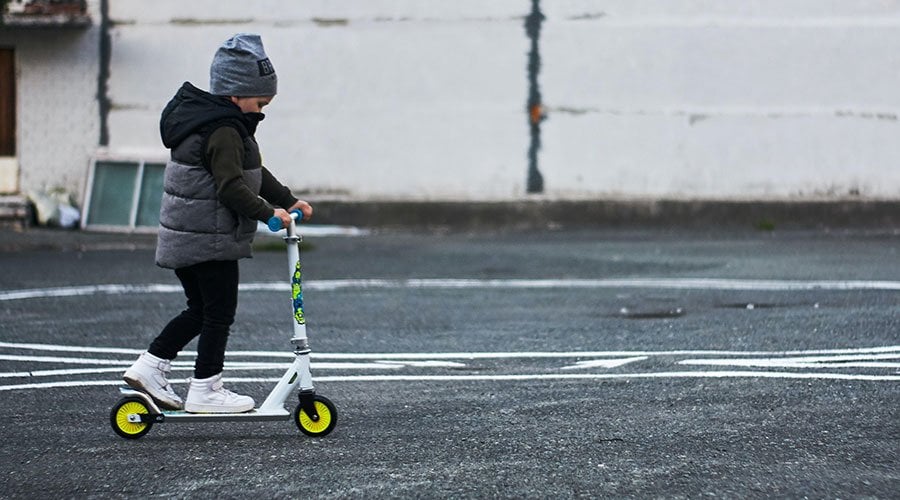Children appear half as likely to catch COVID-19 as adults
22 May 2020 London School of Hygiene & Tropical Medicine London School of Hygiene & Tropical Medicine https://lshtm.ac.uk/themes/custom/lshtm/images/lshtm-logo-black.png
Children and young people appear to be more than 50% less likely to catch SARS-CoV-2 – the virus that causes COVID-19 – than adults, finds a large review of global test and tracing and population screening studies.
The findings, which are awaiting peer review and formal publication, provide further evidence on children’s susceptibility to COVID-19. This data will be important for informing the UK Government’s decision-making about school reopening and easing lockdown restrictions.
However, evidence remains weak on how likely children are to transmit the virus to others.
This study was a collaboration between researchers from London School of Hygiene and Tropical Medicine (LSHTM), University College London and other partners.
In the largest study of its kind, researchers undertook a meta-analysis study and systematic review of more than 6,000 international studies to understand children’s susceptibility to COVID-19 - how likely it is they will become infected – and whether they pass it on to others, known as transmission or infectiousness.
The researchers identified 18 studies with useful data: nine contact-tracing studies, eight population-screening studies and one systematic review of small household cluster contact-screening studies.
This analysis showed that children and young people (aged under 18-20) had 56% lower odds of catching SARS-CoV-2 from an infected person, compared with adults (aged over 20). Researchers did not have sufficient data to examine whether children (under 12s) differed to teenagers in susceptibility.
Furthermore, while children appear less likely to catch the virus from others, once they are infected it remains uncertain about how likely children are to pass it on.
These findings suggest that children might play a lesser role in the transmission of SARS-CoV-2 at a population level, because fewer children are likely to be infected in the first place. However, the study provides no information on the infectiousness of children - the level to which children can transmit the virus once infected.
Study co-author Dr Rosalind Eggo, Assistant Professor at LSHTM, said: “The available evidence has been brought together in a systematic way to better understand SARS-CoV-2 infections of children. It suggests that children and young people are at lower risk of infection than adults and may therefore play a smaller role in the epidemic as a whole. This new evidence will help us better understand the possible effect of school reopening on transmission in schools and in the community."
Study co-author Professor Chris Bonell, Professor of Public Health Sociology at LSHTM, said: “There are many questions about the role children and young people play in the current outbreak. They have been shown to make up a very small proportion of clinical cases. From analysing multiple studies from around the world, we believe that children and teenagers are less likely to catch the virus, but further research is needed to confirm how easily they pass it on to others if they do have it.”
Lead author Professor Russell Viner, UCL Great Ormond Street Institute of Child Health, said: “There is an increasing amount of data now available on children and COVID-19, and this is the first comprehensive study to carefully review and summarise what we do and do not know about susceptibility and transmission.
“Our findings show children and young people appear 56% less likely to contract COVID-19 from infected others. Susceptibility is a key part of the chain of infection, and this supports the view that children are likely to play a smaller role in transmitting the virus and proliferating the pandemic, although considerable uncertainty remains.
“This new data provides essential evidence to governments around the world to inform their decision-making on whether to reopen schools and reduce or end lockdown measures.”
LSHTM are playing a key role in providing evidence to the government to allow them to make informed decisions for public health. Professor Bonell is on the Scientific Pandemic Influenza Group on Behaviours (SPI-B), and Dr Eggo contributes findings that are presented to the Scientific Pandemic Influenza Group on Modelling (SPI-M) and the Children’s Task and Finish Working Group.
**This research is not yet peer-reviewed**
Publication
Russell M. Viner, Oliver T. Mytton, Chris Bonell, G.J. Melendez-Torres, Joseph Ward, Lee Hudson, Claire Waddington, James Thomas, Simon Russell, Fiona van der Klis, Jasmina Panovska-Griffiths, Nicholas G. Davies, Robert Booy, Rosalind Eggo. Susceptibility to SARS-CoV-2 infection amongst children and adolescents compared with adults: a systematic review and meta-analysis.
LSHTM's short courses provide opportunities to study specialised topics across a broad range of public and global health fields. From AMR to vaccines, travel medicine to clinical trials, and modelling to malaria, refresh your skills and join one of our short courses today.